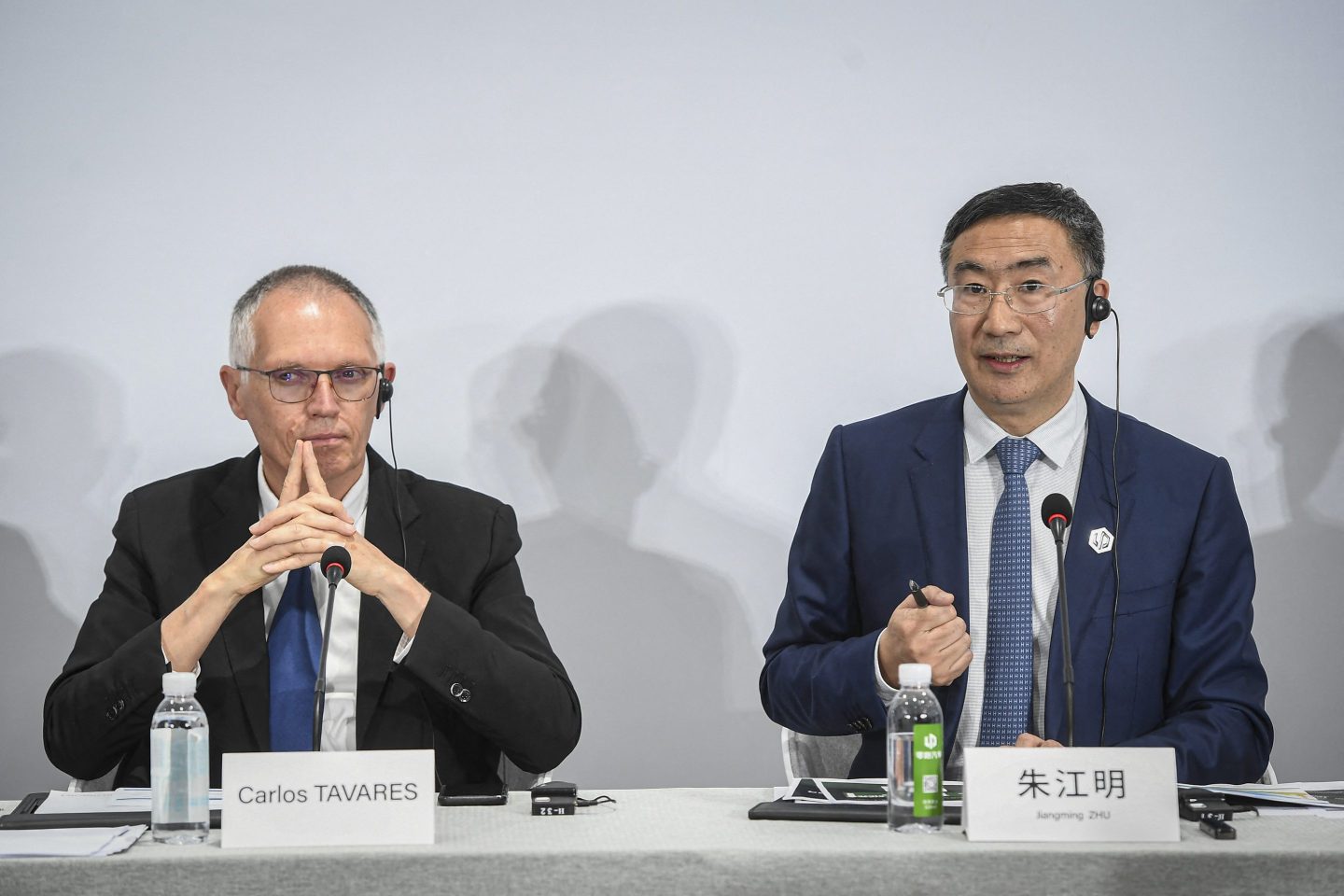European carmaker Stellantis on Tuesday said it had formed a joint venture with the Chinese electric vehicle startup Leapmotor that will begin selling EVs in nine European countries later this year.
Sales will begin in September for Belgium, France, Italy, Germany, Greece, Netherlands, Romania, Spain and Portugal, Stellantis CEO Carlos Tavares said at a news event in Hangzhou.
From Q4, electric vehicles will also be sold to countries in South America, Middle East and Africa, as well as India and the Asia Pacific, Tavares said.
Stellantis and Leapmotor, an EV startup, did not provide details on where the electric vehicles would be produced, but that the location must have the “capacity available to support the sales” and meet quality criteria and cost competitiveness.
The models launched will be the T03 and C10 models, with plans to introduce one new model annually over the next three years, Tavares said.
“We expect to bring a significant boost to the international sales of these models,” he said.
The two companies announced new a joint venture called Leapmotor International to manufacture and sell Leapmotor’s electric vehicles outside of China. It is 51% owned by Stellantis and 49% owned by Leapmotor.
In October last year, Stellantis invested 1.5 billion euro ($1.61 billion) to buy a 21% stake in Leapmotor and announced a strategic partnership.
Leapmotor CEO Zhu Jiangming said that the alliance with Stellantis would help his company access an extensive overseas dealership and distribution system, as well as factories around the world.
“Political and regional uncertainties in the future are likely to make it inevitable for Chinese new energy vehicle brands to manufacture globally,” Zhu said.
His comments come as the Biden administration announced plans to slap new tariffs on Chinese electric vehicles, advanced batteries, solar cells, steel, aluminum and medical equipment, a move that’s likely to increase friction between the world’s two largest economies.
Both the U.S. and Europe have accused China of overproducing electric cars and dumping them in overseas markets.












